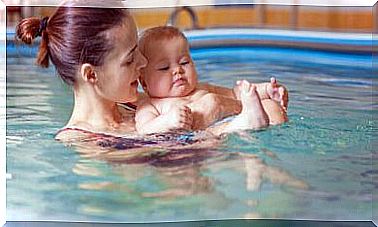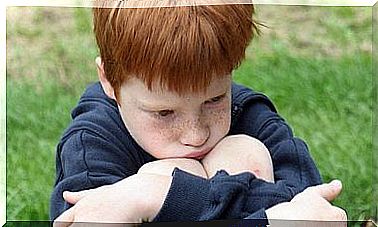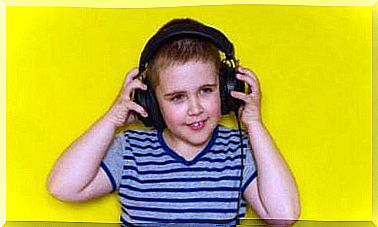Snoring In Children: Causes And Remedies

Snoring is usually caused by disorders such as obstructive sleep apnea, obesity, smoking, alcohol consumption, and other circumstances characteristic of adulthood. For this reason, snoring in children can alarm parents.
When snoring becomes very frequent, concerns arise. In these cases, the pediatrician is usually consulted to make sure that this phenomenon in a child is normal. In case it is not normal then you need to know the difference between a common snore and a snoring symptom of some health problem.
Children who snore atypically
Snoring in babies can be caused by a variety of causes. In most cases it is a harmless and transient phenomenon. But depending on the intensity or particularity of snoring, it can also be a symptom of a serious or potentially serious problem. The most common (biological) causes of snoring in children are as follows:
Illnesses

- Cold. Phlegm causes mucus to build up, which can clog the airways and cause babies to snore as they sleep. Of course, not all children with a cold snore. This is why many parents do not think of associating atypical snoring with a cold. In this case, snoring happens every few minutes.
- Asthma. It is a chronic disease. Its main symptom is the lack of air that the asthmatic subject feels when he makes an effort or is subjected to severe stress. Asthma also makes the airways more hyperactive and sensitive to environmental conditions, which is why factors such as too low a temperature in the child’s bedroom when sleeping, can cause a slight obstruction of the airways that causes snoring.
- Allergies. Mites, animal hair, dust or other debris can more or less stimulate the muscles of the throat or respiratory tract. During the night, the latter become obstructed and make breathing difficult. And children snore.
- Obesity. The neck can also be affected by the formation of fatty deposits. When this occurs, this part of the body is subjected to greater strain which causes children to snore.
- Sleep apnea. This disorder relaxes the muscles in the upper part of the throat causing an obstruction that prevents the passage of air. This is why children snore. Often and willingly it occurs suddenly, at any moment, when the muscles involved in this disorder contract suddenly.
Other triggers of snoring in children
- Amygdales susceptible to cold. Even not in the presence of asthma and cold, the amygdales of children are particularly sensitive to cold, and increase in size, obstructing the passage of air. This is why it is common for babies to snore while sleeping in the winter.
- Cigarette smoke. Smoking in the home of one or both parents can negatively affect the child’s development over time. This is not usually considered a possible cause of snoring in children.
Snoring, however, is not the worst symptom a child will have from secondhand smoke. In the event that this possibility is ascertained, it will be necessary to adopt rules for this habit, in order to avoid the development of more serious diseases such as asthma.

Remedies to prevent snoring in children
Home remedies to prevent babies from snoring include infusions, massages, or sleeping in certain sleeping positions. Obviously these remedies are indicated when the causes of snoring are not pathological in nature. Or rather, they serve to counter it. Other measures that can be adopted are the following:
- Transfer the child to another room.
- Decrease the intensity of the air conditioning.
- Use hypoallergenic sheets or pillows.
- Change the baby’s position when snoring.
Always consulting your doctor will always be the best choice when snoring in children is persistent and is not caused by any obvious cause.
When should i worry if my baby snores?
We need to worry when snoring affects the baby’s daily life. If the moodiness, complaints (such as headaches, muscle pains, etc.) become chronic and the child feels continuously ill because of them, then it is advisable not to delay the visit to the doctor.
Poor rest and lack of sleep can increase the frequency of snoring. In fact, sleep can become lighter and be accompanied by sweating and shortness of breath, among other symptoms . It is necessary to pay attention to this aspect when consulting the pediatrician.









